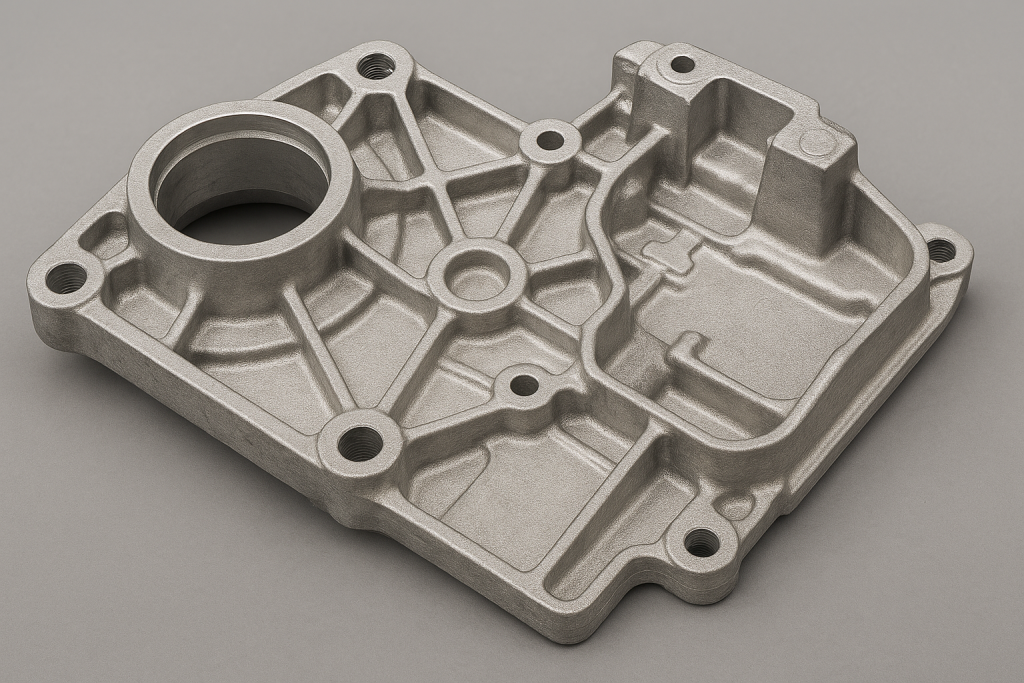ADC12 Properties: Key Material Insights for Optimal Aluminium ADC12 Applications
Aluminium ADC12 is a widely used die-cast aluminum alloy, known for its excellent castability, corrosion resistance, and mechanical strength. The key ADC12 properties—such as high tensile strength, good thermal conductivity, and dimensional stability—make it a preferred choice in automotive, electronics, and industrial applications.
In this article, we will explore the key properties of ADC12 aluminum, its mechanical characteristics, industry applications, and why it is the preferred choice for die casting.
What is Aluminium ADC12?
Aluminium ADC12 is a high-silicon aluminum alloy used in die casting applications. It provides a balance between strength, lightweight properties, and corrosion resistance, making it ideal for complex cast components.
Key Advantages of ADC12 Aluminum
Excellent castability for intricate designs
High tensile strength and durability
Superior corrosion resistance
Good thermal conductivity for heat dissipation
High dimensional stability, reducing machining costs
Mechanical Properties and Key ADC12 Properties of Aluminum Alloy
Understanding the mechanical properties of ADC12 aluminum is essential for selecting the right material for die casting applications. The table below highlights its key attributes:
Table 1: Mechanical Properties of ADC12 Aluminum
| Property | Value |
|---|---|
| Tensile Strength | 310 MPa |
| Yield Strength | 160 MPa |
| Elongation | 1-2% |
| Hardness (HB) | 80-90 |
| Thermal Conductivity | 96-125 W/m·K |
| Density | 2.74 g/cm³ |
| Melting Point | 560-580°C |
1. Tensile Strength and Durability
One of the most important factors in die casting is tensile strength. ADC12 aluminum die casting tensile strength reaches 310 MPa, making it suitable for structural and load-bearing applications.
2. Corrosion Resistance and ADC12 Properties of Aluminum Alloy
The high silicon content in aluminium ADC12 provides natural resistance to oxidation and environmental factors, making it a preferred material for outdoor and industrial applications.
3. Thermal and Electrical Conductivity: Key ADC12 Properties of Aluminum Alloy
With thermal conductivity between 96-125 W/m·K, ADC12 is widely used in heat-dissipating applications, such as electronic housings and automotive engine components.
4. Dimensional Stability & Machinability
ADC12 maintains high dimensional accuracy, reducing the need for post-machining and ensuring cost-effective production.
Applications of ADC12 Die Cast Aluminum
ADC12 is a preferred choice for manufacturers due to its versatility and durability. Here are some real-world applications:
1. ADC12 Properties and Their Importance in Automotive Components
Engine Control Units (ECUs): ADC12’s high tensile strength ensures durability and lightweight performance.
Transmission Housings: Reduces weight while maintaining structural integrity.
2. Electronics & Electrical Components
Heat Sink Casings: ADC12’s thermal conductivity makes it ideal for dissipating heat in power electronics.
LED Lighting Enclosures: Corrosion resistance ensures long lifespan in harsh environments.
3. Industrial & Machinery Parts
Precision Gears & Housings: Ensures dimensional stability and durability in heavy-duty applications.
Pumps & Valves: ADC12’s corrosion resistance enhances performance in industrial fluid systems.
Case Study: Automotive Manufacturer
A leading automotive company switched to ADC12 die cast aluminum housing for lightweight engine components. The result:
20% weight reduction for improved fuel efficiency
Lower production costs due to minimal machining requirements
Increased durability with high tensile strength
Why Choose ADC12 for Your Die Casting Needs?
Aluminium ADC12 offers a perfect combination of strength, corrosion resistance, and machinability, making it the go-to material for die casting applications.
High tensile strength for durable and reliable parts
Excellent castability for complex designs
Cost-effective production with minimal machining
Wide industry applications from automotive to electronics
Want to learn more about ADC12 material for your next project? Download our resource guide today!
Related Blogs:
-
ADC12 Die Casting: Optimizing Product Design with High-Quality Die Cast Aluminum Material
-
What is the Difference Between A380 and ADC12 Aluminum?
-
A380 Aluminum: High-Performance Alloy for Precision Casting
-
What is ADC12 Aluminum Used For?
-
Precision A356 Investment Casting Manufacturer

